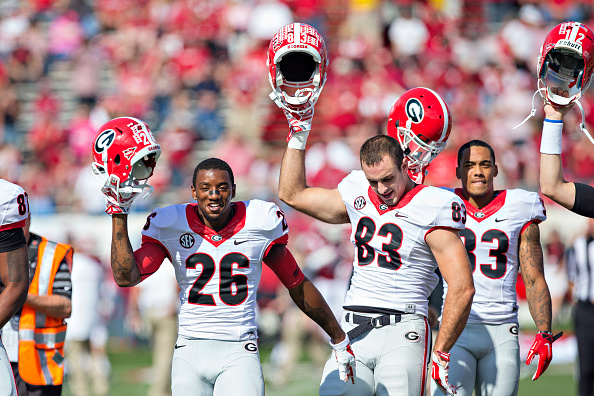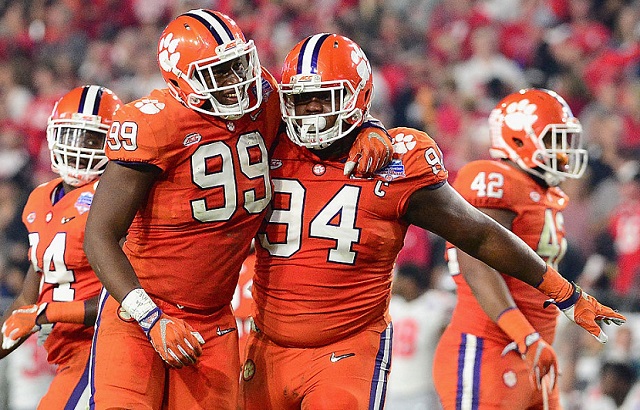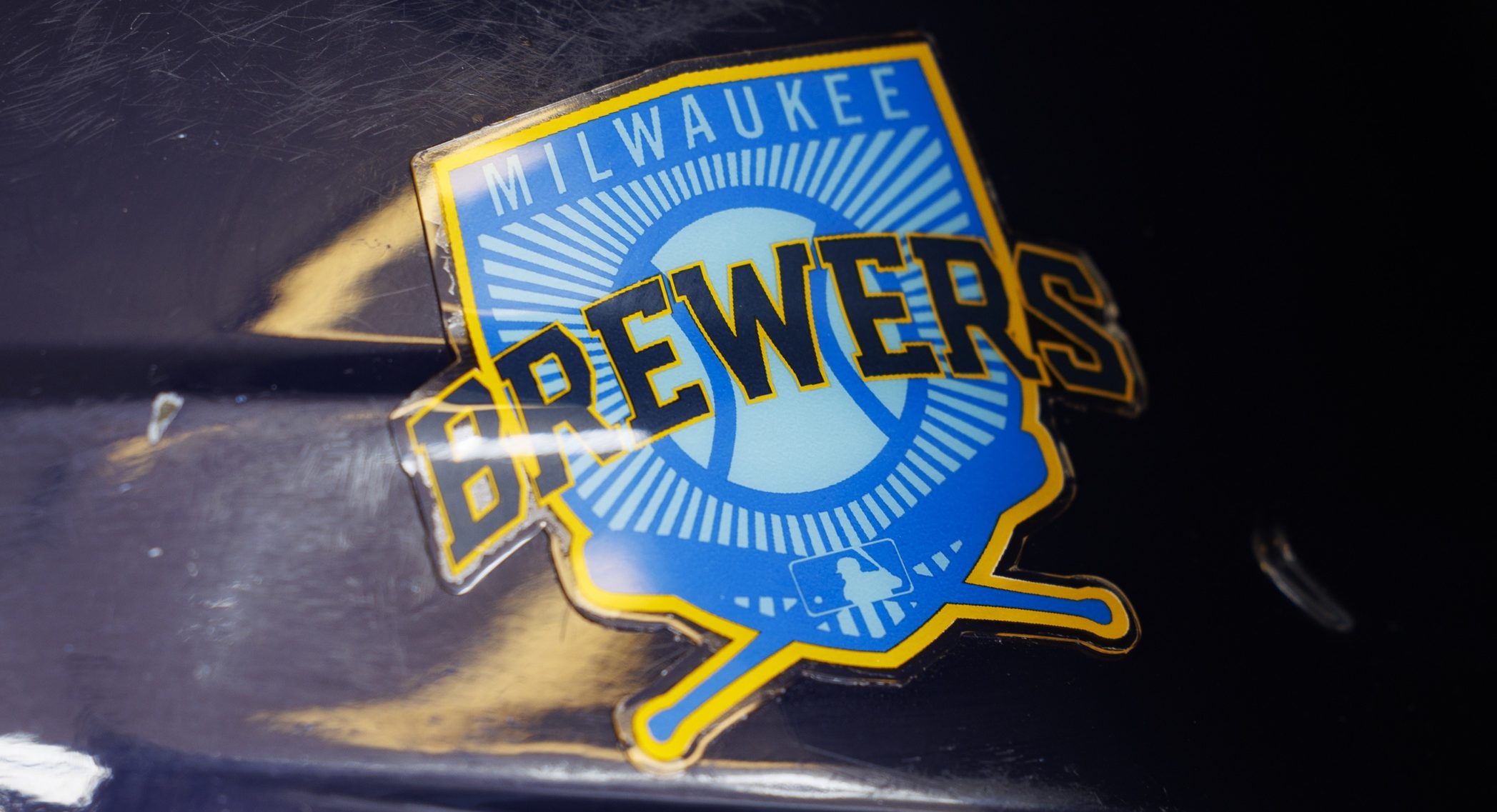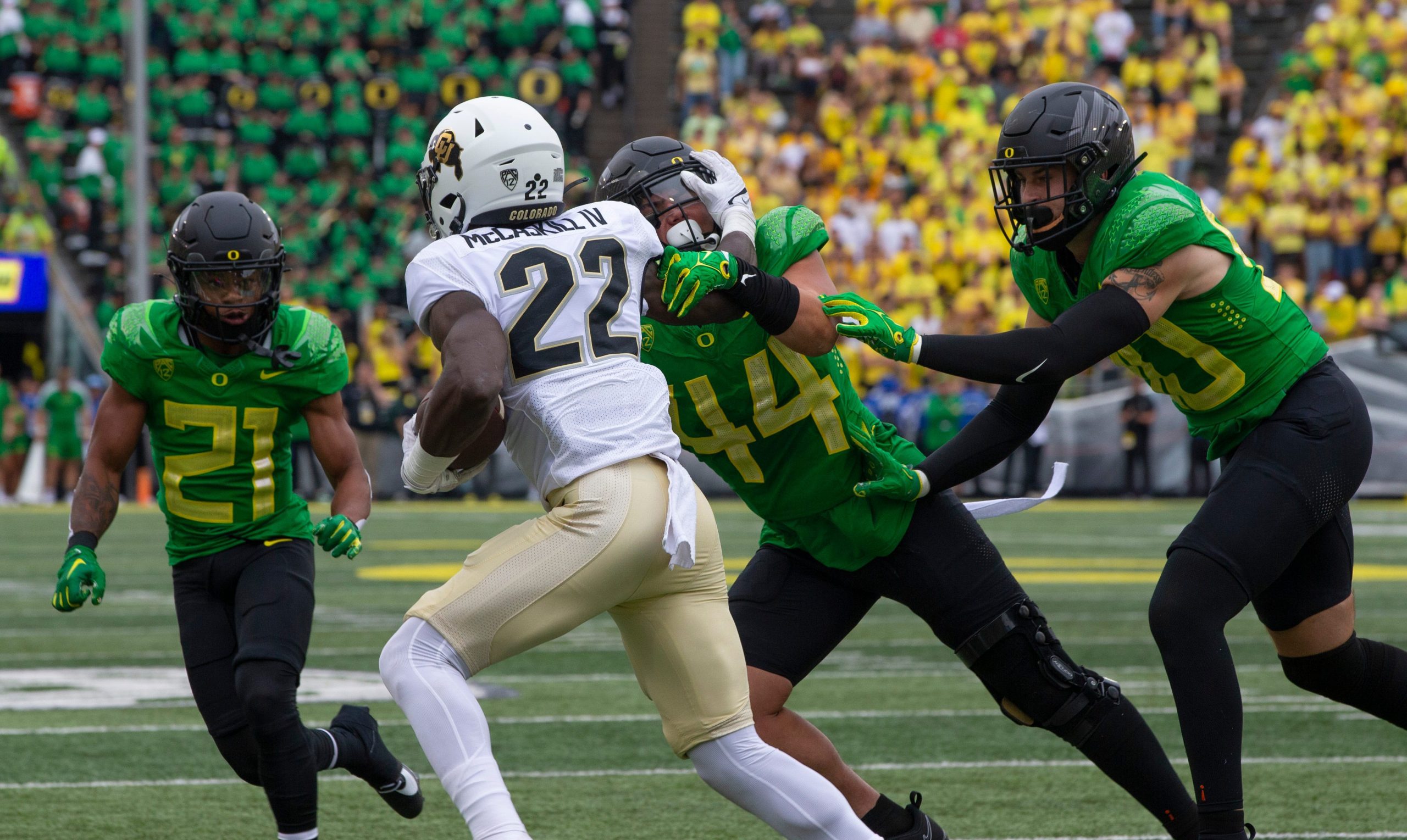College kids are notoriously awful when it comes to budgets and money in general. So what would happen when you give a monthly stipend to college football players who have all their school expenses paid for already?
Most believed the money would be wasted on frivolous things like clothes, shoes and the latest, hottest gadgets. However, a recent article from the New York Times suggests these college football players are largely doing anything but wasting the extra money they are getting. Instead, there is a pretty good tale to be told about what their money is actually doing.
According to the story by Ray Glier, there are a good portion of players who are sending their monthly stipend directly back home to their parent(s). Such is the case with Clemson defensive end Clelin Ferrell, the defensive MVP of the Fiesta Bowl. He chooses to send the money home, only asking for the bare minimum needed to help cover a bill or two each month.
“My mom was, ‘Are you sure you want this sent to me?’ ” said Ferrell, whose father died when he was 13. “And I was like, ‘Yeah, Mom.’ Money is not a big thing with me. I will tell her how much money I need from that check, and she will send some back.”
Not exactly frivolous spending.

Other players are in similar situations, with Georgia players surprised to hear just how many of their teammates send their checks back home to help take care of their families. One player, tight end Jeb Blazevich, was surprised to see it so prevalent.
“That blew me away,” said Blazevich, a tight end from Charlotte, N.C. “That’s the thing that got me to love this team so well, just seeing these guys’ heart and sending the stipend home. These guys are good guys, and they want to do well by their family.”
He added: “People can be changed by money, but these guys are helping their mom out with a phone bill, or making a car payment. Wow.”
Not all players use the money to help people back home, putting that stipend toward their own needs. Some use it to help pay rent, while others put that money toward car repairs and food. That’s not to say players wouldn’t like more or that all stipends are created equal. For instance, some University of Washington players note that the insane price of living in Seattle takes up most of the stipend and then some.
Freshman receive less than others on the team, mainly because they are required to live on-campus for their first year. They receive $300 per month during the academic year, while others receive $1,600 a month to pay for extra expenses.
It means players can now afford that $2,000 a month apartment that is located by campus — with roommates, of course.
That time Myles Gaskin broke free for an 86-yard touchdown run.#MotivationMonday #UWHuskies pic.twitter.com/mEE15xyXwO
— Washington Football (@UW_Football) July 18, 2016
But even with the stipend, some are pointing out that players are still living below the poverty line in some of the places where they play football and go to school. It was something Washington Huskies running back Myles Gaskin pointed out when asked about the stipend:
“The stipend money is not enough, if you really look into it. It is definitely under the poverty line in Seattle, because of the rents in Seattle. It hurts your pockets to live close to campus because of the rent, so the money forces you to make a whole lot of decisions. You have to be smart with your money.”
Ironically, most players point out that they would like more money to pay for a few extra things like clothes after all their other bills are paid. Some of the Clemson and Washington players joked that their favorite clothing line was anything that didn’t feature school colors or logos. Orange and purple can look great on a football field. Maybe not so great walking around town or going out for the evening.
While most believed the money would be wasted (after all, look at all the broke former millionaire athletes in the world), it appears that the vast majority of college football players are prudent with their extra money. Perhaps spending would get more frivolous if the stipends were increased. But for now, the Power 5 conferences appear to have gotten the formula right. Or at least it’s a good start.






